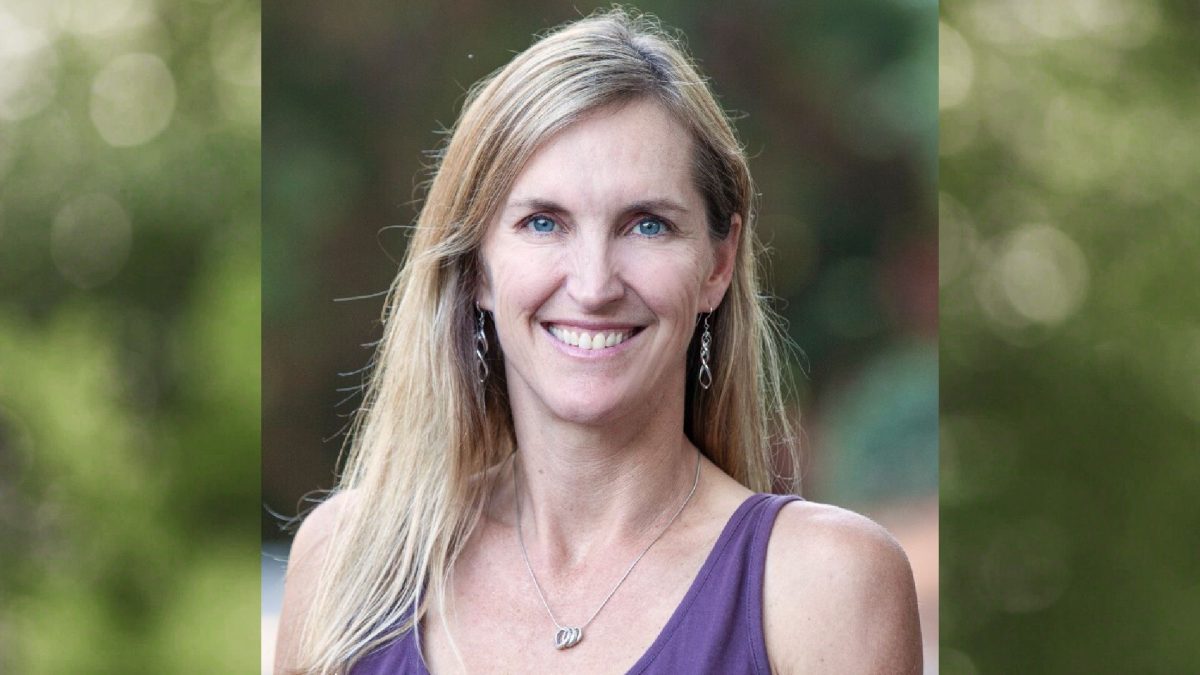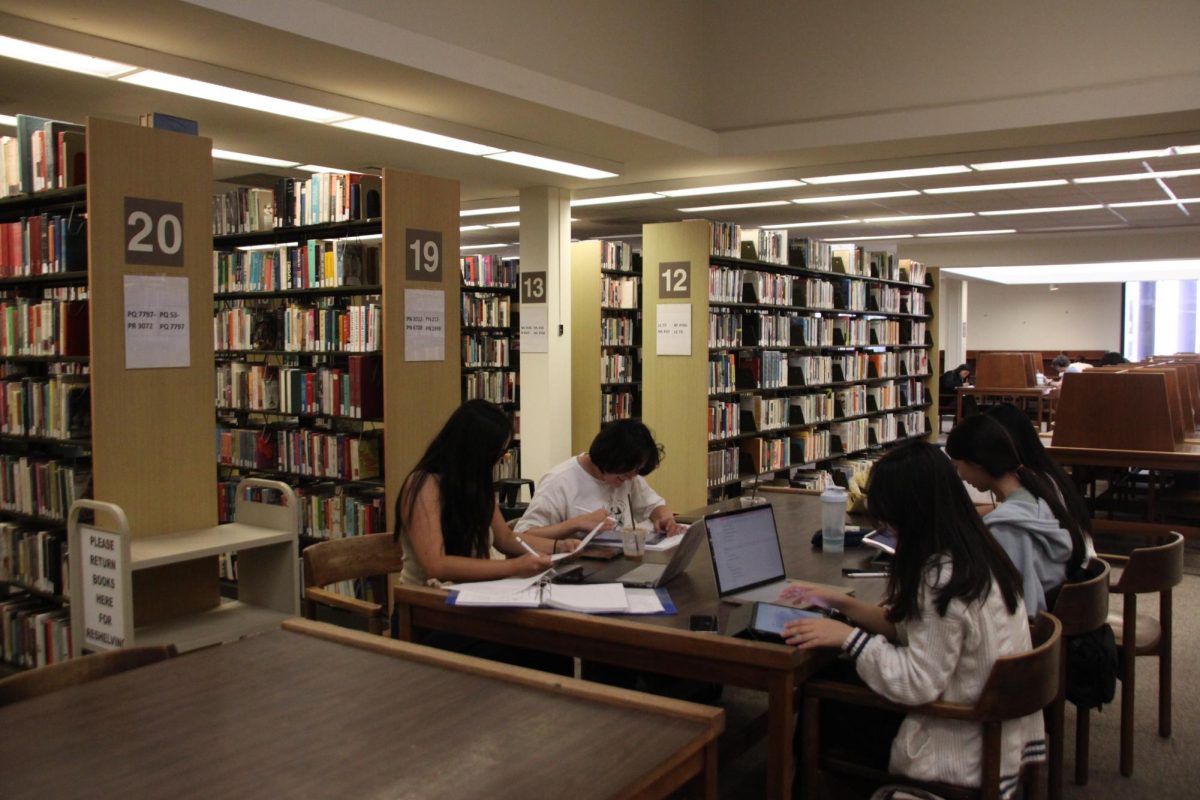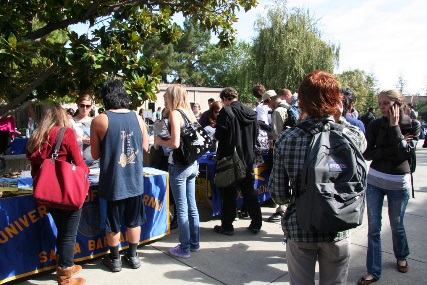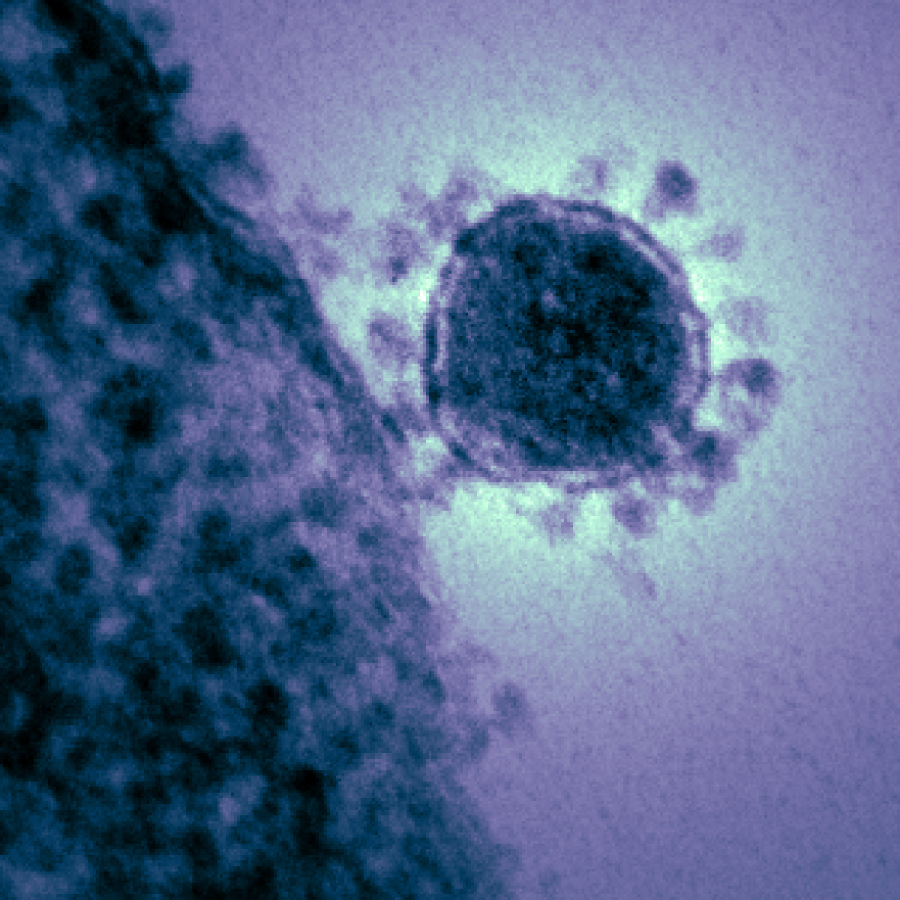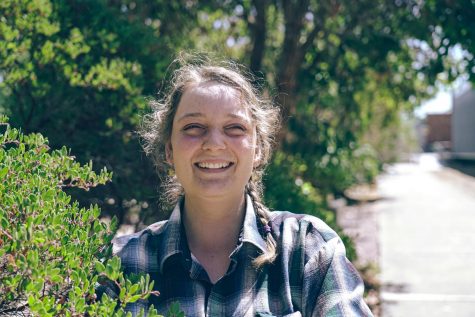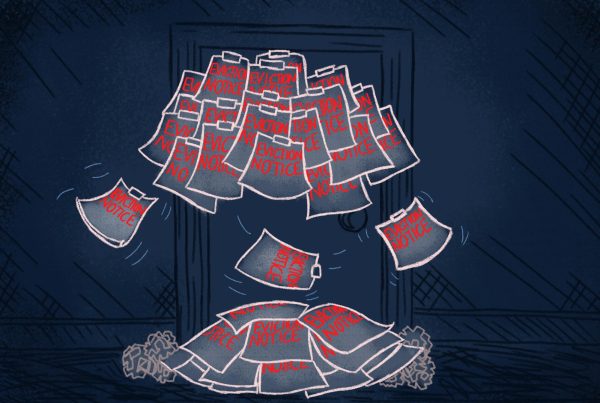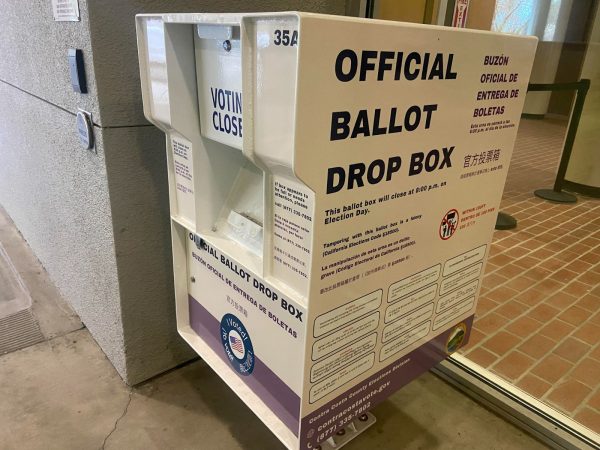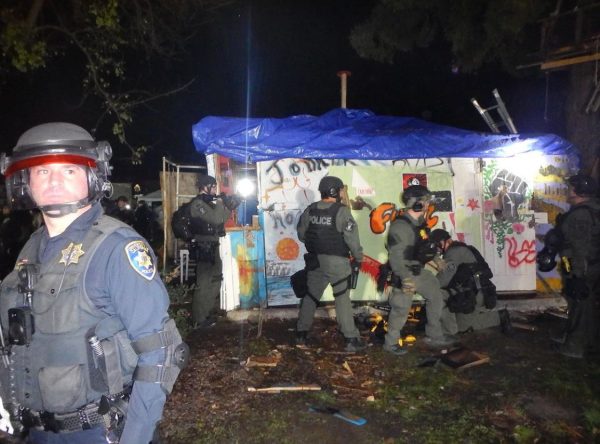Dr. Samar Abedrabbo Brings In Facts And Advice On COVID-19
Magnified and digitally colorized image of the Middle East respiratory syndrome coronavirus (MERS-CoV) (Photo Courtesy of National Institute of Allergy and Infectious Diseases).
March 12, 2020
Dr. Samar Abedrabbo informed students about the COVID-19 virus with a “Facts & Myths” presentation Thursday in the Main Street Bistro at Diablo Valley College.
Abedrabbo, who holds a PhD in microbiology, created the presentation together with her colleagues, Dr. Susan Parkinson, Dr. Gargi Kulkarni and Dr. Karen Gard.
Before the presentation, the tables in the bistro had been moved farther away “to protect each other,” as Abedrabbo said. She then started her presentation by sharing with the students new developments regarding the coronavirus.
“Right now, as of this morning, (the virus) has been detected in over 100 countries,” said Abedrabbo, “which means we have gone from epidemic to pandemic.”
Despite the dramatic impacts on communities around the world, coronaviruses aren’t new.
“We’ve had coronavirus for a long time,” Abedrabbo said. According to the presentation, coronaviruses have been studied for years. For example, they cause about 10-15% of all common cold cases.
However, COVID-19 is a new strain of coronavirus. It recently “jumped” from animals to humans most likely at a market in Wuhan, China, the center of the outbreak.
According to Abedrabbo’s presentation, the virus transmits in three ways: via air when an infected person sneezes or coughs, through direct contact from person to person, and by touching contaminated surfaces. Airborne transmission can happen only in a six-foot radius of the infected person.
Some aspects of the transmission remain unknown.
“We’re not sure how long this coronavirus lasts on surfaces,” Abedrabbo said.
Once a person is infected, the symptoms “develop gradually over two to 14 days” and some people might not even notice them, she said.
“I want everyone to know that most coronavirus cases are very mild,” Abedrabbo added. Children are among the least affected by the virus, while older people suffer the greatest risk.
Abedrabbo said there are precautions people can take to help stop the spread of the virus.
“The virus spreads through your eyes, nose and mouth,” she said, advising that students don’t touch their faces, especially with unwashed hands.
Because the virus is airborne, she advised people to “cover your coughs and sneezes” and “stay home if you are sick.”
If people have suspicion that they could have COVID-19, they should also alert medical facilities like hospitals and emergency rooms before heading there to have themselves checked out.
“Call them before you’re going,” said Abedrabbo.
Another very important precaution, which people might not think of, is to not buy out important supplies.
“We need to be very careful about people buying out things like hand sanitizer,” said Abedrabbo. She called the shortage of sanitary supplies “an issue.”
She stressed the negative impact of this hoarding.
“The only people who should be buying masks are people who are already sick or people who work in medical services,” said Abedrabbo. “The problem is that people are buying out masks and medical staff doesn’t have access to them now.”
This problem affects some DVC students, too.
“There’s a student in my class who is a medical assistant and she can’t get a mask,” Abedrabbo said, adding that “if we don’t take care of our healthcare workers, this is going to negatively impact everyone in our community.”
The panic surrounding the virus and the lack of information also caused some people to spray “Lysol and bleach on their skin,” Abedrabbo said. This behavior can be dangerous as Lysol and bleach are not intended to be used as hand sanitizers, and the cans warn: “Do not spray in eyes, on skin, or on clothing.”
“Please don’t do this,” she said.
Abedrabbo closed her presentation by advising students to take care of themselves.
“We can all positively impact our community by making sure we are safe.”
Editor’s Note: “Please note that knowledge and information about COVID and coronaviruses has increased tremendously since the time of this presentation and publication (March 2020). The DVC Microbiology professors would like to note that we fully support all recommendations and guidelines presented by WHO (World Health Organization) and the CDC (Center for Disease Control). Please visit the WHO and CDC websites for latest COVID data.”






















